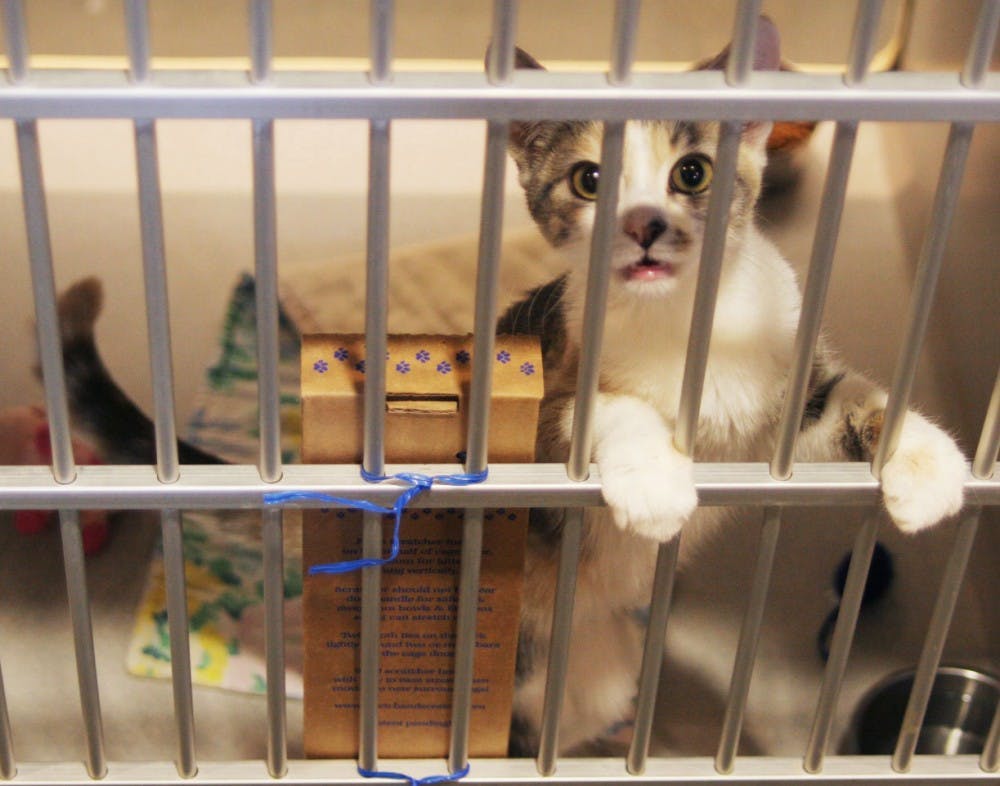The online photo caption on a previous version of this story incorrectly state that the standars were Board of Orange County Commissioners’. The Daily Tar Heel apologizes for the error.
Robin Cutson went to the Orange County Animal Services Center determined to offer a home to a cat in need. But when she arrived she was shocked at how small the cages were.
“It appears that the shelter was built more for the people that work there than for the animals,” she said.
On Aug. 21, Cutson, along with Margaret Heath and Chapel Hill Town Councilwoman Laurin Easthom, presented a report to the Orange County Board of Commissioners outlining the main issues at the shelter.
According to the report, the cages at the shelter did not meet the standards for humane housing for cats, as outlined by the Association of Shelter Veterinarians.
“You want to enlarge the cages but not reduce the number of animals that you are holding, because then you would have to euthanize them,” Cutson said.
The Guidelines for Standards of Care in Animal Shelters state cats should have a minimum of 30 cubic feet of space and there should be no less than two feet between the cat’s resting area, food area and litter box.
But these standards might not always be in line with the shelter’s resources and animal population, said Robert Marotto, animal services director.
“To my knowledge, there is not a cat enclosure on the market that meets the Association for Shelter Veterinarian’s standards,” Marotto said.



